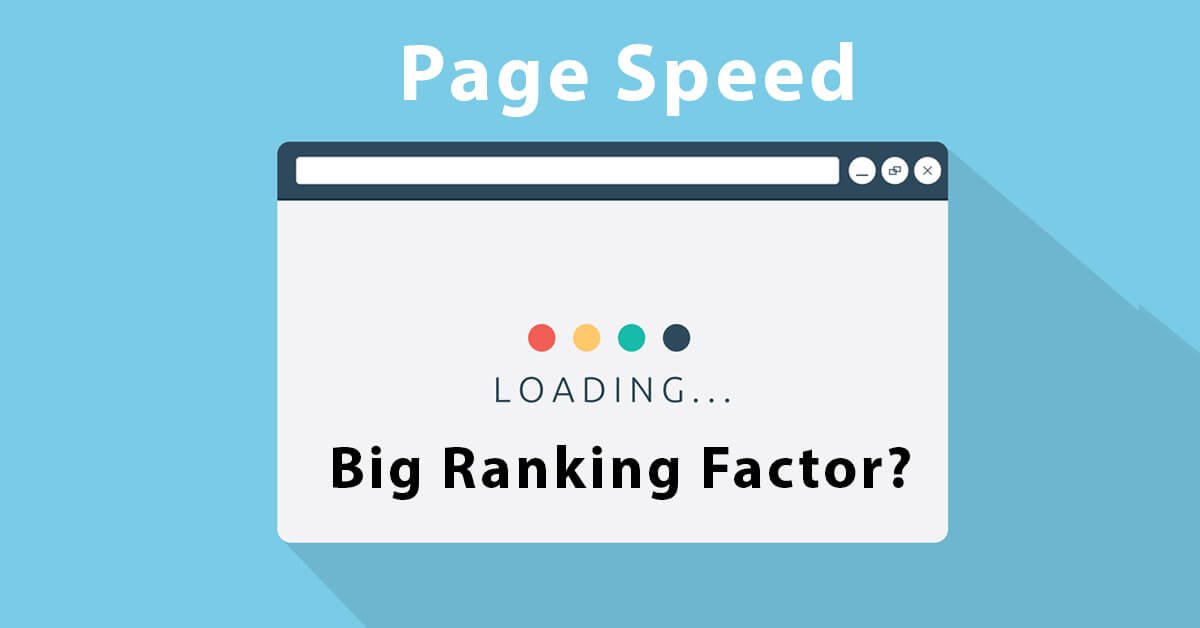Unravel the enigma behind SEO’s mysterious universe as we venture into the intriguing realm of on-page versus off-page optimization. Like two sides of a proverbial coin, these contrasting approaches to search engine optimization hold the power to elevate a website’s visibility and drive organic traffic. However, the question remains: which path should you embark upon to unlock the coveted top positions on the search engine results pages? In this article, we will delve deep into the intricacies of on-page and off-page SEO, peeling back their layers to reveal the hidden mechanisms that underpin their effectiveness. So, prepare to extract invaluable insights, decode the algorithms, and navigate the complex labyrinth of SEO tactics, as the battle between on-page and off-page optimization reveals its secrets.
Table of Contents
- Understanding On-Page SEO: Optimizing Your Website for Search Engines
- The Importance of Off-Page SEO: Building Your Website’s Online Presence
- Synergizing On-Page and Off-Page SEO: Strategies for Maximum Impact
- Effective Techniques to Improve On-Page and Off-Page SEO Performance
- Q&A
- The Conclusion

Understanding On-Page SEO: Optimizing Your Website for Search Engines
When it comes to optimizing your website for search engines, there are two key aspects that you need to understand: on-page SEO and off-page SEO. These two techniques work hand in hand to boost your website’s visibility in search engine rankings, but they focus on different areas. Let’s decode the differences between on-page and off-page SEO to help you navigate this complex world.
On-Page SEO:
- On-page SEO refers to all the strategies and techniques that you implement on your actual website pages to improve their search engine rankings.
- This involves optimizing various elements of your web pages, including title tags, meta descriptions, headings, URL structure, keyword usage, and internal linking.
- On-page SEO ensures that search engines can easily understand the content and relevance of your web pages, making them more likely to rank higher in search results.
Off-Page SEO:
- Off-page SEO, on the other hand, focuses on activities that happen outside of your website to boost its visibility and authority.
- This includes link-building activities, such as acquiring high-quality backlinks from reputable websites, social media engagement, guest blogging, and online reputation management.
- Off-page SEO signals to search engines that your website is trustworthy, popular, and an authoritative source of information, ultimately increasing your chances of ranking higher in search results.
While both on-page and off-page SEO are vital for optimizing your website, it’s important to understand their differences and how they complement each other. By having a strong on-page SEO foundation and a solid off-page SEO strategy, you’ll be well on your way to improving your website’s visibility and driving organic traffic from search engines.

The Importance of Off-Page SEO: Building Your Website’s Online Presence
Off-Page SEO is a critical component of building your website’s online presence. While On-Page SEO focuses on optimizing your web pages through factors such as keyword placement, meta tags, and content quality, Off-Page SEO takes a different approach. It involves actions taken outside of your website to improve its visibility and credibility in the eyes of search engines.
So, why is Off-Page SEO so important? Let’s dive into it and shed some light on its significance:
-
Enhances search engine rankings:
Off-Page SEO signals, such as backlinks, social media engagement, and online collaboration, play a crucial role in determining your website’s search engine rankings. By building a strong off-page strategy, you can increase your website’s visibility to potential visitors and rise above your competitors in the search results. -
Establishes authority and trust:
When search engines notice that reputable websites are linking to your website, they perceive it as a vote of confidence. This reflects positively on your website’s credibility and improves its chances of being considered authoritative. By developing a robust off-page presence, you can build trust with search engines and broaden your reach to a broader audience. -
Expands brand awareness:
Off-Page SEO techniques help you reach a wider audience beyond your website. Through social media marketing, influencer collaborations, and guest posting, you can expose your brand to new potential customers. By consistently implementing off-page strategies, you can create brand advocates and generate valuable organic traffic.

Synergizing On-Page and Off-Page SEO: Strategies for Maximum Impact
When it comes to optimizing your website for search engines, two important strategies stand out: on-page SEO and off-page SEO. In this post, we will decode these two types of SEO and explore how you can synergize them to achieve maximum impact for your website.
On-Page SEO: This refers to the optimization techniques you implement directly on your website to improve its search engine rankings. Here are some key elements of on-page SEO:
- Keyword Optimization: Research and strategically incorporate relevant keywords throughout your website’s content, meta tags, URLs, and headings.
- Content Quality: Create valuable, informative, and engaging content that satisfies the search intent of your target audience.
- Page Title and Meta Description: Craft compelling titles and meta descriptions that accurately reflect your content and entice users to click.
- URL Structure: Ensure your URLs are concise, descriptive, and easy to read.
- Internal Linking: Link relevant pages and content within your website to improve navigation and enhance the user experience.
Off-Page SEO: Unlike on-page SEO, off-page SEO focuses on activities outside of your website that positively impact its search engine rankings. Here are some effective off-page SEO strategies:
- Link Building: Acquire high-quality backlinks from authoritative websites in your industry, which signals to search engines that your website is trustworthy and valuable.
- Social Media Engagement: Actively participate in social media platforms to increase brand visibility, attract more visitors, and potentially earn natural backlinks.
- Online Reputation Management: Monitor and manage your online reputation to build trust and credibility among search engines and potential customers.
- Guest Blogging: Contribute valuable content to reputable websites, earning exposure, and backlinks in return.
By synergizing on-page and off-page SEO strategies, you can achieve a comprehensive approach to optimizing your website for search engines. Each strategy complements the other, enhancing your website’s visibility, authority, and ultimately driving more organic traffic to your site.

Effective Techniques to Improve On-Page and Off-Page SEO Performance
Looking to enhance your website’s performance on search engines? Understanding the difference between on-page and off-page SEO is key to achieving higher rankings and driving organic traffic to your site. Let’s uncover effective techniques to improve both aspects of SEO performance and boost your online presence.
On-Page SEO: These are optimization tactics that you can implement directly on your website to improve its visibility in search results. Here are some essential techniques beginners should focus on:
- Keyword Optimization: Conduct thorough keyword research and strategically place relevant keywords throughout your website’s content, Meta tags, headings, and URLs.
- Quality Content: Craft engaging, informative, and user-friendly content that addresses the needs and interests of your target audience. Remember, content is king!
- Meta Tags: Optimize your title tags and meta descriptions to succinctly summarize your page content, enticing search engine users to click through to your website.
Off-Page SEO: While on-page SEO focuses on optimizing your website, off-page SEO involves building your website’s credibility and authority through external factors. Here’s what you need to nail off-page SEO:
- Link Building: Acquire high-quality backlinks from reputable websites in your industry to signal to search engines that your content is valuable and trustworthy.
- Social Media Engagement: Utilize social media platforms to promote your content, engage with your audience, and generate buzz around your brand.
- Online Reputation Management: Monitor and actively manage your online reputation by responding to customer reviews and participating in industry discussions.
By implementing these effective techniques for on-page and off-page SEO, you’ll be well on your way to improving your website’s visibility, driving organic traffic, and staying ahead of your competition. Remember to regularly monitor your website’s performance, adapt your strategies based on search engine algorithms, and consistently optimize your content for better rankings. Happy SEO optimizing!
Q&A
Q: What exactly is on-page SEO?
A: On-page SEO refers to the optimization techniques and strategies implemented directly on a webpage to improve search engine rankings. It involves various factors such as content quality, keyword usage, meta tags, URL structure, and internal linking.
Q: How does on-page SEO differ from off-page SEO?
A: On-page SEO focuses on optimizing the content and elements within a webpage, such as title tags and headers, while off-page SEO involves external factors like backlink building, social media marketing, and online reputation management.
Q: Why is on-page SEO important?
A: On-page SEO plays a crucial role in making your webpage search engine-friendly. By optimizing your content, meta tags, and other elements, you increase the chances of your webpage appearing in search engine results for relevant queries, driving more organic traffic to your site.
Q: Can you provide some examples of on-page SEO techniques?
A: Certainly! On-page SEO techniques include keyword research, incorporating relevant keywords naturally into your content, optimizing meta tags, creating descriptive and user-friendly URLs, using header tags effectively, optimizing images, and ensuring a mobile-friendly design.
Q: How can I improve my on-page SEO?
A: To improve your on-page SEO, start by conducting keyword research to identify relevant terms for targeting. Then, incorporate these keywords naturally into your content and meta tags. Make sure your webpage loads quickly, has a clean URL structure, and is easily navigable for users. Additionally, focus on creating high-quality, informative, and engaging content to satisfy both search engines and users.
Q: Is off-page SEO less important than on-page SEO?
A: Both on-page and off-page SEO are equally important. While on-page SEO enhances your webpage’s visibility and accessibility to search engines, off-page SEO helps build your website’s authority and relevance in the online world. A comprehensive SEO strategy should incorporate both approaches to maximize your site’s visibility and ranking potential.
Q: Can you provide examples of off-page SEO strategies?
A: Certainly! Off-page SEO strategies include building high-quality backlinks from reputable websites, social media marketing and engagement, guest blogging, influencer collaborations, and online reputation management through customer reviews and testimonials.
Q: Which is more challenging, on-page or off-page SEO?
A: The challenges of on-page versus off-page SEO differ. On-page SEO focuses more on technical optimization, ensuring that your webpage meets search engine guidelines and performs well in search results. Off-page SEO, on the other hand, requires building relationships and creating valuable content to attract quality backlinks and increase online visibility. Both areas require effort and expertise to succeed.
Q: Is it necessary to prioritize one over the other?
A: It is not necessary to prioritize on-page or off-page SEO as they work together synergistically. While on-page SEO optimizes your website’s structure and content, off-page SEO builds credibility and visibility. An effective SEO strategy should consider both aspects to achieve the best possible results.
Q: Are there any common mistakes to avoid in on-page and off-page SEO?
A: Yes, some common mistakes include keyword stuffing, using irrelevant or low-quality backlinks, neglecting to optimize meta tags, not promoting content through social media channels, and not regularly monitoring your website’s performance and rankings. Continuous learning, planning, and adapting to updates and trends can help avoid such mistakes.
The Way Forward
In the intricate dance of search engine optimization, the interplay between on-page and off-page SEO is a neverending puzzle. As we delve deeper into the world of digital marketing, it becomes clear that understanding the distinction between these two pillars is essential for success.
Unraveling the enigmatic codes of on-page SEO, we have explored the importance of crafting compelling content, optimizing titles and meta tags, and nurturing a user-friendly website. The power to captivate readers, while strategically incorporating relevant keywords, lies firmly in on-page optimization. It is the foundation upon which our digital empire is built, ensuring that our virtual doorstep is inviting, intuitive, and memorable.
Yet, in the vast expanse of the digital landscape, we find the blurred lines and cryptic secrets of off-page SEO. This intricate art form choreographs the external factors that influence our online presence. Link building, social media engagement, and brand mentions are the symphony of signals that echo beyond our virtual walls. Here, our relevance and authority are fortified, ready to take on the grand stage of search engine rankings.
The harmonious blend of on-page and off-page techniques unlocks the true potential of our digital endeavors. It is the yin and yang, the push and pull, the magnetic force that propels our website’s visibility towards the upper echelons of search engine results.
As the curtain falls on our exploration of on-page and off-page SEO, let us remember that success lies in the duality of our efforts. By continually refining our on-page strategies and diligently nurturing our off-page networks, we embrace the ever-evolving nature of search engines and position ourselves for triumph in the digital realm.
So, wander forth, armed with the knowledge of on-page optimization and the artistry of off-page tactics. Embrace the synergy of these essential elements and unleash the full potential of your digital presence. The journey towards search engine superiority awaits, and you alone hold the key to decoding the intricate intricacies of on-page vs. off-page SEO.

